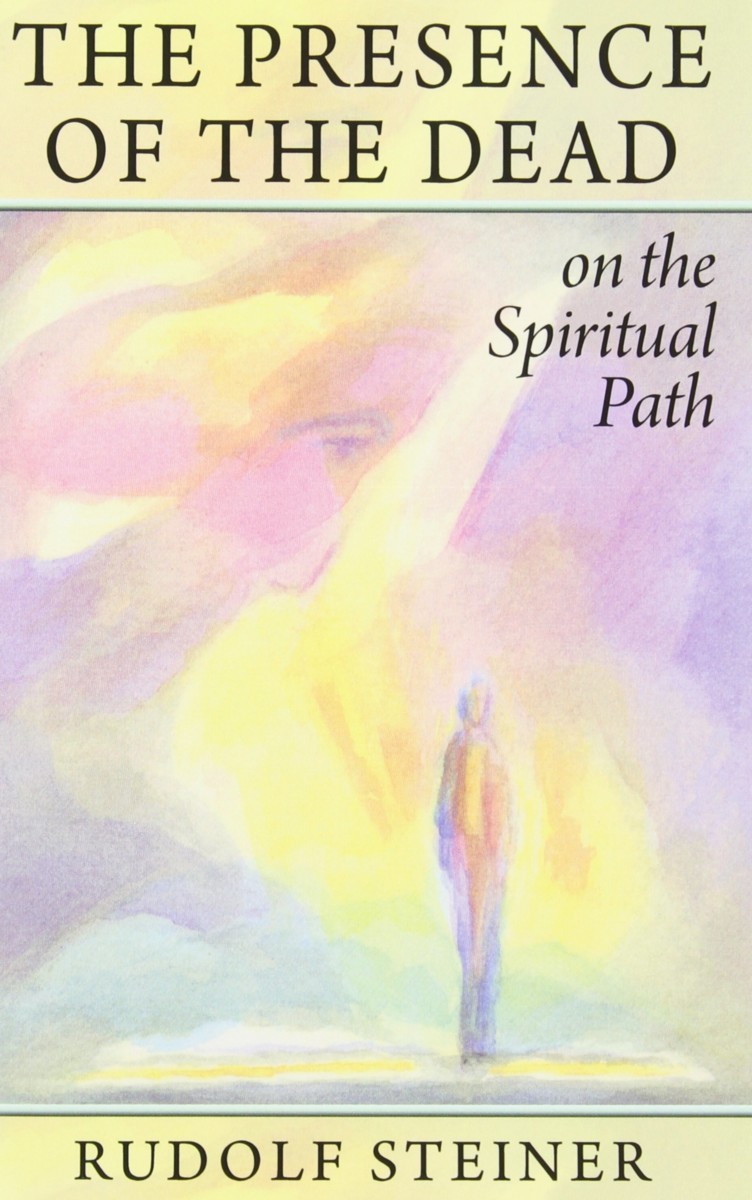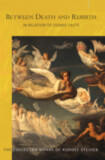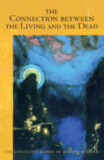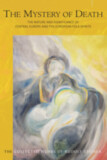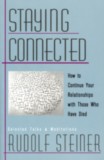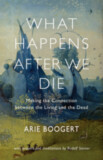The Presence of the Dead on the Spiritual Path
(CW 154)
- Publisher
SteinerBooks - Published
1st June 1990 - ISBN 9780880102834
- Language English
- Pages 128 pp.
7 lectures, various cities, April 17 – May 26, 1914 (CW 154)
“To perceive the etheric world, we must become much more active, work much harder than we do in ordinary life. After death, too, the soul must be filled with much more active strength than in ordinary life to relate to its environment. Otherwise, we do not perceive the etheric world, just as we wouldn’t perceive anything if we lacked all senses in the physical world. Thus, we need a more active strength of soul to find our way after death and not to be deaf and blind, figuratively speaking, to the world we enter then.” — Rudolf Steiner (Apr. 18, 1914)
What is the relationship between those who have died and those who remain alive on Earth? Can we help those now in the spiritual world? Can they help us?
In these talks, Rudolf Steiner deals with the spiritual relationships that the living can have with those who have crossed over the threshold between life and death. In a realistic, practical way, he shows how an understanding of our spiritual nature reveals ways of knowing a world undreamed of by materialists.
The tone of these talks is warm and moving, clearly drawn from Steiner's own experience and the lives of those who had died and who were personally known to him—Robert Hamerling, Christian Morgenstern, and others.
This important work is for those who are coming to terms with the death of a love one.
This book is a translation from German of Wie erwirbt man sich Verständnis für die geistige Welt? Das Einfließen geistiger Impulse aus der Welt der Verstorbenen (GA 154).
C O N T E N T S:
Forewords
1. Understanding the Spiritual World, part 1
2. Understanding the Spiritual World, part 2
3. Awakening Spiritual Thoughts
4. The Presence of the Dead in Our Life
5. The Blessing of the Dead
6. Faith and Knowledge
7. Robert Hamerling: Poet and Thinker
Rudolf Steiner
Rudolf Steiner (b. Rudolf Joseph Lorenz Steiner, 1861–1925) was born in the small village of Kraljevec, Austro-Hungarian Empire (now in Croatia), where he grew up. As a young man, he lived in Weimar and Berlin, where he became a well-published scientific, literary, and philosophical scholar, known especially for his work with Goethe’s scientific writings. At the beginning of the twentieth century, he began to develop his early philosophical principles into an approach to systematic research into psychological and spiritual phenomena. Formally beginning his spiritual teaching career under the auspices of the Theosophical Society, Steiner came to use the term Anthroposophy (and spiritual science) for his philosophy, spiritual research, and findings. The influence of Steiner’s multifaceted genius has led to innovative and holistic approaches in medicine, various therapies, philosophy, religious renewal, Waldorf education, education for special needs, threefold economics, biodynamic agriculture, Goethean science, architecture, and the arts of drama, speech, and eurythmy. In 1924, Rudolf Steiner founded the General Anthroposophical Society, which today has branches throughout the world. He died in Dornach, Switzerland.


